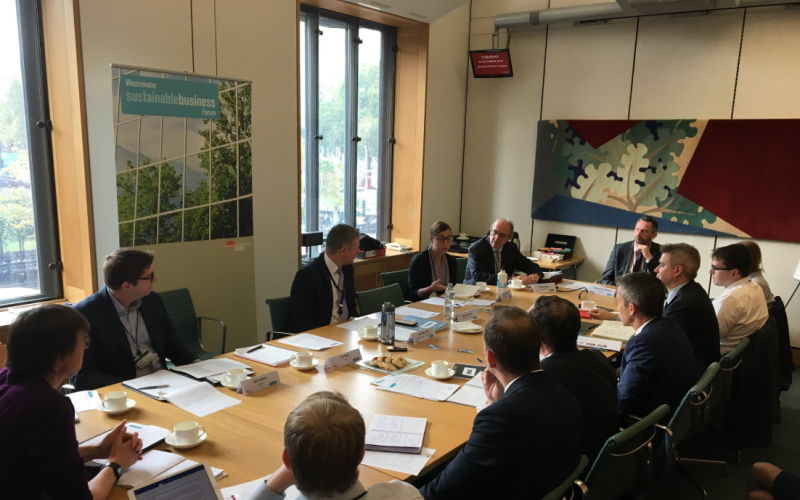We must act now on water efficiency, say experts at WSBF roundtable
After the hot summer of 2018 and the threat of the dreaded hosepipe ban, WSBF wanted to look at whether we were taking the risk of drought seriously enough in England.
This roundtable was chaired by Luke Pollard MP, Shadow Water and Flooding Minister. Expert speakers were:
- Prof. Ian Barker: Water Policy International
- Dr Manuela Di Mauro, National Infrastructure Commission
- Aaron Burton, Waterwise
This was the first of the follow-up events to WSBF's Bricks & Water report which looked at long-term water resources in England, and sought to answer the following questions:
- With the stresses on water of climate change and population growth, are we ever going to get into a situation in England where we are running out of water?
- Is there more forward resilience planning we need to do?
- Do we need to build more water resource assets like reservoirs?
- What role can demand management and water efficiency play in achieving resilience?
The key points were:
- We are at risk of drought: A severe drought in England in the next decade is very possible, and would be publically unacceptable and very expensive to the economy (eg. >£300m per day).
- The level of risk is uncertain: Droughts are difficult to predict in certain regions that are reliant on rain and reservoirs rather than boreholes. It is also difficult to predict future water demand, and therefore the water resources that England will need in the future.
- We must take action now: Despite this high level of uncertainty, there is a strong case for taking action now - new reservoirs will be needed in some areas; higher product standards and a mandatory water label; greater smart meter coverage; and greater water efficiency to reduce demand, including building new houses to a higher water efficiency standard.
- We must plan for the future: Drought risk planning needs to be put on a par with flood risk management planning, with more regional planning being encouraged so that different water companies work together. There should be a more risk-based approach to drought planning, so that the worst risks are alleviated first.





